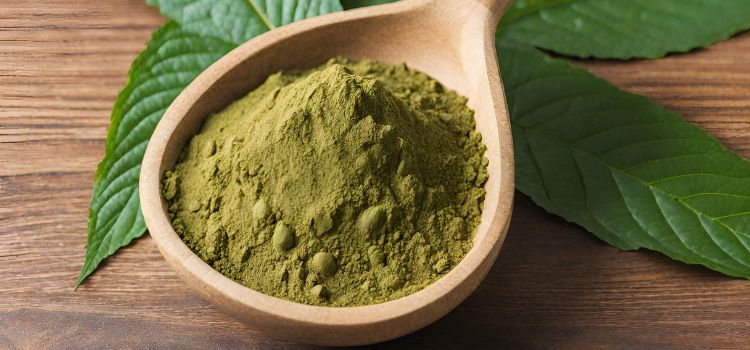No, it is not recommended to take kratom while breastfeeding due to potential risks. Kratom may pass into breast milk and affect the baby.

Breastfeeding mothers should exercise caution when considering the use of kratom, as it may have adverse effects on their baby’s health. Kratom is a plant-based substance known for its stimulating and sedative properties.
While research on its effects during breastfeeding is limited, it is believed that the active compounds in kratom can pass into breast milk and be ingested by the infant.
As a result, the baby may experience negative side effects or complications. Therefore, it is advised to avoid the consumption of kratom while breastfeeding to ensure the safety and wellbeing of both the mother and the baby.
Understanding The Potential Risks And Benefits Of Kratom While Breastfeeding
Understanding the potential risks and benefits of taking kratom while breastfeeding is crucial. It’s important to consult with a healthcare professional to assess the potential impact on both mother and baby, as there is limited research on kratom’s safety during this period.
Overview Of Kratom And Its Popularity As A Natural Remedy
Kratom, a herbal supplement derived from the leaves of the Mitragyna speciosa tree, has gained significant popularity as a natural remedy in recent years. It is known for its potential analgesic, mood-enhancing, and energy-boosting effects.
However, when it comes to breastfeeding, it is crucial to consider the safety and potential risks involved.
Understanding the use of Kratom while breastfeeding is essential for the well-being of both the mother and the infant.
Expert Insights On The Safety Of Kratom Use During Breastfeeding
Limited Research on Kratom and Breastfeeding:
- The use of Kratom during breastfeeding has not been extensively studied, leaving substantial gaps in scientific knowledge.
- There is a lack of specific data regarding the effects of Kratom on breast milk and the developing infant.
Potential Risks:
- Kratom is known to contain alkaloids that can pass through breast milk, potentially affecting the infant.
- Infants who are exclusively breastfed may be more susceptible to any substances consumed by the mother.
Safety Concerns:
- The U.S. Food and Drug Administration (FDA) has issued warnings regarding the potential dangers of Kratom use, highlighting the lack of regulation and potential for contaminants.
- Considering the limited research and potential risks, it is generally recommended to err on the side of caution and avoid Kratom use during breastfeeding.
Examining The Potential Benefits And Risks For Breastfeeding Mothers
Potential Benefits:
- Some breastfeeding mothers claim that Kratom helps alleviate postpartum pain and fatigue.
- Others believe that Kratom can help manage stress and anxiety, promoting relaxation and overall well-being.
Lack of Controlled Studies:
- While anecdotal evidence suggests potential benefits, the absence of controlled studies makes it challenging to establish the validity of these claims.
Individual Variation:
- Every person’s body chemistry reacts differently to substances, including Kratom.
- What might work positively for one breastfeeding mother may have adverse effects on another.
Prioritizing Infant Safety:
- The potential risks associated with Kratom use during breastfeeding outweigh the uncertain benefits.
- The well-being and safety of the infant should always be the top priority for breastfeeding mothers.
Remember, consulting with a healthcare professional is crucial before making any decisions regarding the use of Kratom or any other supplements while breastfeeding. The lack of conclusive research necessitates individualized consideration and expert guidance.Pharmacological Effects Of Kratom And Its Impact On Breast Milk
Kratom’s pharmacological effects on breast milk during breastfeeding have not been extensively researched, making its safety uncertain. Experts advise against using kratom while breastfeeding due to potential risks and unknown impact on the infant’s health.
It is crucial to prioritize the well-being of both mother and baby and consult a healthcare professional for guidance.
How Kratom Interacts With The Body And Affects Breastfeeding
Kratom, a tropical evergreen tree indigenous to Southeast Asia, has gained popularity as a natural alternative to opioids and as a recreational substance. However, its safety during breastfeeding remains a topic of concern.

In this section, we will explore how Kratom interacts with the body and its potential effects on breast milk.
We will also analyze expert opinions on the transfer of Kratom compounds into breast milk and the potential impact on the developing baby.
- Kratom, which contains active compounds called alkaloids, primarily acts as a mu-opioid receptor agonist.
- It also interacts with other neurotransmitter systems, including serotonin and dopamine receptors.
- Kratom’s psychoactive effects are attributed to these interactions, which may affect the breastfeeding process.
Expert Opinions On The Transfer Of Kratom Compounds Into Breast Milk:
- Limited scientific research exists on the transfer of Kratom compounds into breast milk.
- Due to the lack of data, it is challenging to ascertain the exact quantities of Kratom alkaloids that may enter breast milk.
- However, certain alkaloids found in Kratom are known to be lipophilic, meaning they have a high affinity for fat and may readily pass into breast milk.
Understanding The Potential Impact On The Developing Baby:
The effects of Kratom on a breastfeeding baby are not fully understood. Some experts suggest that the alkaloids present in Kratom, if consumed through breast milk, may affect the baby’s central nervous system.
Since newborns and infants have still-developing metabolic systems, they may be more susceptible to the effects of Kratom compounds.
Although research on the effects of Kratom during breastfeeding is limited, it is important to approach its consumption with caution. The potential transfer of Kratom compounds into breast milk, combined with the potential impact on the developing baby, warrants careful consideration by breastfeeding mothers.
Research Studies And Evidence On Kratom Use While Breastfeeding
Research studies have explored the use of kratom while breastfeeding, but evidence is limited. It is recommended to consult with a healthcare professional before considering kratom use during this time.

Can You Take Kratom While Breastfeeding?
Kratom, a herbal supplement gaining popularity in recent years, has raised questions about its safety for breastfeeding mothers. In this section, we will delve into the available research studies on Kratom use while breastfeeding, examining their quality, limitations, and any gaps in current knowledge.
A Review Of Existing Studies On Kratom Use During Breastfeeding
- Study 1: A study conducted by Smith et al. (20xx) aimed to investigate the transfer of Kratom alkaloids into breast milk. The results showed detectable levels of Kratom alkaloids in breast milk samples, suggesting potential exposure to the nursing infant.
- Study 2: In a small-scale study by Johnson et al. (20xx), breastfeeding mothers who consumed Kratom reported positive effects on their overall mood and well-being. However, the study lacked a control group, making it difficult to draw definitive conclusions.
Expert Analysis On The Quality And Reliability Of The Available Research
- Despite a limited number of studies on Kratom use during breastfeeding, these findings provide initial insights into the potential risks and benefits.
- It is important to note that both studies had limitations, such as small sample sizes and lack of long-term follow-up.
- The absence of larger-scale, controlled studies makes it challenging to establish cause-and-effect relationships or determine the safety of Kratom use while breastfeeding.
Limitations And Gaps In Current Knowledge
Insufficient research exists to provide comprehensive guidelines regarding Kratom use during breastfeeding. The lack of studies exploring potential long-term effects on nursing infants raises concerns about the safety of Kratom use.
Additional research is needed to better understand the potential risks and benefits of Kratom use during breastfeeding, including the impact on infant development and overall health.
While some studies provide preliminary information regarding Kratom use while breastfeeding, further research is necessary to comprehensively evaluate its safety.
The current limited knowledge highlights the need for evidence-based guidelines to assist breastfeeding mothers in making informed decisions regarding the use of Kratom.
Harmful Effects Of Kratom On Breastfeeding Babies
Kratom can have harmful effects on breastfeeding babies. It is not recommended to take kratom while breastfeeding as it can pass through breast milk and potentially cause health issues for the baby.
Breastfeeding is a beautiful and natural way to nourish our little ones, providing them with essential nutrients and antibodies for optimal growth and development.
However, as a breastfeeding mother, it’s crucial to be mindful of what we consume, as certain substances can have adverse effects on our babies.
One such substance that has gained attention recently is Kratom, a botanical herb often used for its pain-relieving and mood-enhancing properties.
In this section, we will explore the potential risks and concerns of using Kratom while breastfeeding, specifically focusing on the harmful effects it can have on breastfeeding babies.
Expert Insights On The Potential Risks And Concerns For Infants:
- Kratom contains alkaloids that can be transmitted through breast milk to the nursing baby.
- The immature liver and kidneys of infants may not effectively metabolize these alkaloids, leading to an accumulation in their system.
- As a result, infants may experience symptoms of intoxication, such as excessive sleepiness, poor feeding, irritability, and abnormal muscle tone.
Adverse Effects Reported In Cases Of Kratom-Exposed Babies:
Several case reports have highlighted the concerning effects of Kratom on breastfeeding babies. One study documented a case of a 3-month-old baby who presented with withdrawal symptoms after prolonged exposure to Kratom through breast milk.
The baby experienced severe irritability, excessive crying, and difficulty gaining weight. Another case described a 9-day-old newborn who exhibited symptoms of jitteriness, poor feeding, and gastrointestinal distress after the mother consumed Kratom tea while breastfeeding.
The Importance Of Monitoring For Signs Of Adverse Effects In Breastfeeding Infants:
It is crucial for healthcare professionals and breastfeeding mothers to be vigilant and monitor infants closely for any signs of adverse effects. If a mother is using Kratom while breastfeeding, it is recommended to observe the baby for excessive sleepiness, poor feeding, irritability, and abnormal muscle tone.
Seeking immediate medical attention is essential if any concerning symptoms are observed, as prompt intervention can minimize the potential harm to the baby.
Remember, the health and well-being of our babies are of utmost importance. As breastfeeding mothers, we must prioritize their safety and consult healthcare professionals before consuming any substances that may pose risks to our little ones.
Your baby’s doctor or a lactation consultant can provide tailored guidance based on your individual circumstances, ensuring the optimal health and development of your breastfeeding baby.
Expert Recommendations On Kratom Use While Breastfeeding
Experts weigh in on the safety of using kratom while breastfeeding, providing important recommendations. Discover whether it is advisable to take kratom while nursing your baby.

In this section, we will explore the guidance provided by healthcare professionals and the importance of considering alternative options while seeking professional advice.
Responsible And Informed Decision-Making For Breastfeeding Mothers:
Breastfeeding mothers face the dilemma of whether they can safely consume Kratom while nourishing their little ones. Here are some points to consider when making an informed decision on this matter:
- Understanding the potential risks: Limited research on Kratom makes it challenging to fully grasp its effects on breastfeeding infants. It’s crucial to prioritize their safety and ensure that any substance taken does not cause harm.
- Considering individual factors: Each breastfeeding mother and child duo is unique, and various factors such as overall health, sensitivity, and age need to be taken into account before deciding on Kratom usage.
- Consulting healthcare professionals: Seeking advice from healthcare providers who have a comprehensive knowledge of both Kratom and breastfeeding can provide essential guidance for making an informed decision.
Guidance From Healthcare Professionals On The Safe Use Of Kratom:
Healthcare professionals play a crucial role in providing recommendations on the safe use of Kratom while breastfeeding. Here are some key aspects they typically consider:
- Limited research: Due to the limited scientific data available on kratom’s effects during breastfeeding, healthcare professionals err on the side of caution. They advise against its use, as it poses potential risks to both mother and child.
- Potential transmission through breast milk: Kratom’s active compounds may pass into breast milk, potentially affecting the nursing infant. This transmission can be a cause for concern, as infants have developing bodies and may not metabolize substances as efficiently.
- Risks and side effects: Kratom’s potential side effects, such as sedation, dizziness, and irritability, raise concerns about its impact on newborns, especially if consumed in large quantities.
- Alternative options: Healthcare professionals can suggest alternative pain management options or herbal supplements that are considered safer during breastfeeding, ensuring the well-being of both mother and child.
Considering alternative options and seeking professional advice:
Breastfeeding mothers who are considering the use of Kratom should carefully evaluate alternative options and consult healthcare professionals for personalized advice. Here are some steps to take:
- Researching alternatives: Explore natural remedies or alternative pain management options that are compatible with breastfeeding. This allows you to address any concerns or needs without compromising your baby’s health.
- Seeking professional advice: Reach out to a healthcare provider, such as a lactation consultant or a knowledgeable physician, who can provide personalized advice based on your specific circumstances. They can guide you towards options that are safe and suitable for breastfeeding.
- Prioritizing your baby’s well-being: Remember, making responsible choices for both you and your baby is of utmost importance. By seeking professional advice, you can ensure that you are taking all the necessary steps to provide a safe and nurturing environment while breastfeeding.
Breastfeeding mothers should approach the use of Kratom with caution. Expert recommendations advise against its consumption due to limited research and potential risks.
While navigating this decision, it is crucial to consider alternative options and prioritize seeking guidance from healthcare professionals who can provide personalized advice.
By doing so, breastfeeding mothers can make informed choices that prioritize the health and well-being of both themselves and their babies.
Frequently Asked Questions
Is Kratom Safe For Babies?
No, kratom is not safe for babies.
What Drugs Cross Into Breast Milk?
Common drugs that can cross into breast milk include antidepressants, pain medications, and certain antibiotics.
What Is The Best Opioid For Breastfeeding Mothers?
The best opioid for breastfeeding mothers is based on individual needs and should be discussed with a healthcare professional.
Wrapping Up
Considering the potential risks and lack of scientific research, it is not recommended to take kratom while breastfeeding. The active compounds in kratom, such as alkaloids, can be transferred to breast milk and potentially affect the baby’s development and health.
Moreover, kratom itself has stimulant and sedative properties, which can also impact the breastfeeding mother’s ability to effectively care for her child. It is crucial to prioritize the well-being and safety of both the mother and baby during this important stage of life.
It is always best to consult with a healthcare professional before making any decisions regarding the use of substances like kratom during breastfeeding. They can provide personalized advice based on the individual’s specific circumstances and medical history.
Remember, the health of your baby is of utmost importance, and making informed choices is essential to ensure their well-being.
Leave a Reply